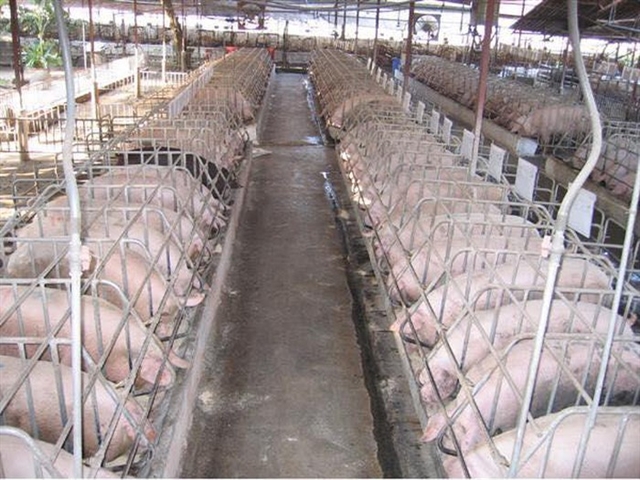 Society
Society

The Ministry of Agriculture and Rural Development has issued an official document to request 20 provinces and cities to take drastic and synchronous measures to prevent and control African swine fever (ASF).

|
| The Ministry of Agriculture and Rural Development requests 20 provinces and cities to take drastic and synchronous measures to prevent and control African swine fever. — Photo chinhphu.vn |
HÀ NỘI — The Ministry of Agriculture and Rural Development has issued an official document to request 20 provinces and cities to take drastic and synchronous measures to prevent and control African swine fever (ASF).
The request aims to ensure safety for redeveloping breeding and pork supply.
The cities and provinces include Hà Nội, Lạng Sơn, Cao Bằng, Bắc Kạn, Tuyên Quang, Bắc Ninh, Quảng Ninh, Lào Cai, Sơn La, Hòa Bình, Phú Thọ, Ninh Bình, Nghệ An, Hà Tĩnh, Quảng Trị, Thừa Thiên - Huế, Quảng Nam, Đắk Lắk, Đắk Nông and Bà Rịa - Vũng Tàu.
According to a report of the local veterinary agencies, the African swine fever has reoccurred in 155 communes of 20 provinces and cities, culling nearly 4,000 pigs.
A high risk of African swine reoccurring and spreading in large scale remains, the document said.
Through inspecting the safe implementation of animal husbandry, the Department of Animal Health found a number of major causes of recurrence and spread of the disease.
Firstly, after the disease has been well contained, a number of small-scale farming households redeveloped their herds but the breeding pigs were mainly bought from markets, trading places or traders with unknown origin.
Secondly, outbreaks have reoccurred in small farming households without effective prevention and isolation measures or meeting disease prevention and hygiene requirements.
Many pig breeding farms have not reported the disease to authorities and tried to sell sick pigs, making it harder to keep the disease from spreading, according to the department.
Breeders also did not take samples for testing when the pigs showed signs of being infected or suspected of being infected.
Wastes and wastewater which were discharged directly to the environment without treatment also caused the spread of the disease.
Another reason is that farmers did not report to the local authorities or veterinary agencies to promptly handle cases of pigs newly infected with ASF.
In many localities, the shortage of veterinary force is also a reason that causes difficulty in monitoring, promptly detecting and implementing prevention measures.
To prevent further spreading of the disease, the ministry ordered the chairmen of People's Committee in provinces and cities to urgently direct the departments and administrations at all levels to mobilise resources to implement drastic prevention and control measures, avoiding negligence and subjectivity.
Departments of Agriculture and Rural Development was required to immediately establish working groups and send technical staff to localities infected with the disease (less than 30 days) to coordinate with local authorities to control and prevent ASF.
Transporting, trading pigs for breeding and slaughtering need to be closely monitored and strictly handled with violations to prevent the risk of recurrence and disease spread. — VNS




